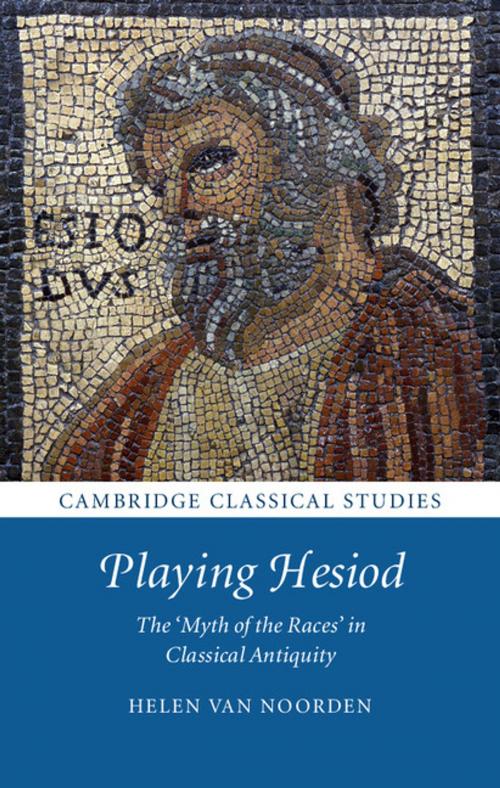Playing Hesiod
The 'Myth of the Races' in Classical Antiquity
Fiction & Literature, Literary Theory & Criticism, Ancient & Classical, Nonfiction, Religion & Spirituality, Philosophy| Author: | Helen Van Noorden | ISBN: | 9781316188538 |
| Publisher: | Cambridge University Press | Publication: | December 15, 2014 |
| Imprint: | Cambridge University Press | Language: | English |
| Author: | Helen Van Noorden |
| ISBN: | 9781316188538 |
| Publisher: | Cambridge University Press |
| Publication: | December 15, 2014 |
| Imprint: | Cambridge University Press |
| Language: | English |
This book offers a new description of the significance of Hesiod's 'myth of the races' for ancient Greek and Roman authors, showing how the most detailed responses to this story go far beyond nostalgia for a lost 'Golden' age or hope of its return. Through a series of close readings, it argues that key authors from Plato to Juvenal rewrite the story to reconstruct 'Hesiod' more broadly as predecessor in forming their own intellectual and rhetorical projects; disciplines such as philosophy, didactic poetry and satire all engage in implicit questions about 'Hesiodic' teaching. The first chapter introduces key issues; the second re-evaluates the account in Hesiod's Works and Days. A major chapter outlines Plato's use of Hesiod through close study of the Protagoras, Republic and Statesman. Subsequent chapters focus on Aratus' Phaenomena and Ovid's Metamorphoses; the final chapter, on the Octavia attributed to Seneca and Juvenal's sixth Satire, broadens ideas of Hesiod's reception in Rome.
This book offers a new description of the significance of Hesiod's 'myth of the races' for ancient Greek and Roman authors, showing how the most detailed responses to this story go far beyond nostalgia for a lost 'Golden' age or hope of its return. Through a series of close readings, it argues that key authors from Plato to Juvenal rewrite the story to reconstruct 'Hesiod' more broadly as predecessor in forming their own intellectual and rhetorical projects; disciplines such as philosophy, didactic poetry and satire all engage in implicit questions about 'Hesiodic' teaching. The first chapter introduces key issues; the second re-evaluates the account in Hesiod's Works and Days. A major chapter outlines Plato's use of Hesiod through close study of the Protagoras, Republic and Statesman. Subsequent chapters focus on Aratus' Phaenomena and Ovid's Metamorphoses; the final chapter, on the Octavia attributed to Seneca and Juvenal's sixth Satire, broadens ideas of Hesiod's reception in Rome.















